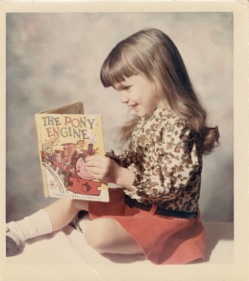
Here’s what happened.
I was in Silver City for the Southwest Festival of the Written Word in early October, where I sat at a table for two days trying to sell my book. The vendor area, in the banquet room of The Murray Hotel, turned out to be sort of an oxbow lake, a place apart from the free workshops and author readings taking place nearby that made the festival a magnet for book lovers. Consequently, the vendors spent a lot of time talking to each other, perusing each other’s books, and suffering through bad coffee. (I also spent a lot of time feeling guilty for not buying more books, but that’s another story.)
Enter “Jane Doe,” a woman with soft, thoughtful eyes who arrived a few hours after the hall opened. After setting up at a table across from mine, she greeted me warmly and spent some time looking through the books at our Terra Nova Books table. (It was technically a publisher’s “booth,” so there were about twenty titles for sale). When she got to mine, she said to me, “I know what it takes to write a novel, to stay focused on it for years, to put yourself out there. I congratulate you. Can you tell me about it?”
Who could ask for a better opener? I told her about my book and she listened earnestly. Then I asked about hers, which turned out to be a rich, fat novel set in Indian country. (I’m avoiding detail here because it’s not as if “Jane” thought she was being interviewed; she will remain anonymous.) Oh, that book looked delicious. Jane, a scholar and an academic, had done extensive research and spent ten years writing it. I read the jacket copy and was hooked. I promised to come to her reading and buy the book.
Somehow the conversation turned toward reading critically, and I explained how I teach my students to do analyses that require them to not only examine a text’s content (what the author says) but also its microstructure (what the author does). I explained that political speeches are a good place to start because they’re so transparent. (Try it some time—it will go something like this: Here’s the greeting. Here’s the invocation of God. Here’s the part that’s meant to appeal to my patriotism. Here’s the part that’s meant to scare me, followed quickly by the part that’s meant to assuage my fears because the speaker has a solution. Here’s the part that exhorts me to believe in a grand vision. Here’s the closing, which also invokes God. Done.)
“Yes, and you can see that when Obama speaks,” she said.
“Of course,” I agreed.
“Watch where he pauses,” she said. “He’s telling on himself.”
I’m sure I looked bewildered.
“He doesn’t even believe what he’s saying half the time,” she continued. “Just watch him.”
“Well I’ve watched him many times….”
And we were off.
“He’s done nothing as president.”
“He’s been blocked by vicious, self-serving demagogues at every turn.”
“Half my friends and family are uninsured since Obamacare took effect.”
“The AMA has concluded that the Affordable Care Act is a success.”
“Our Second Amendment rights are in danger.”
“The wingnuts are in the pockets of the NRA.”
It went on. And on. It wasn’t revealing, it wasn’t probing, it wasn’t stimulating. It just sucked. I didn’t want to look at her soft, thoughtful eyes anymore. I didn’t want to hear her earnest voice. And I certainly didn’t want to buy her book. I wanted her to evaporate.
I made an excuse to end the conversation—time for more crappy coffee—and escaped. When I returned, she was busy at her own table and that was the end of it.
But I sure felt like a fraud.
In his Sept. 23 piece in Time, “Ignorance Vs. Reason in the War on Education,” Kareem Abdul-Jabbar writes, “We seem hardwired to discard information that contradicts our beliefs.” He quotes Francis Bacon: “The human understanding when it has once adopted an opinion … draws all things else to support and agree with it.” To challenge these human tendencies, I always have my students read two important works: “The Indispensable Opposition,” by Walter Lippman, after which I encourage them to learn from their opponents rather than shut them out; and Plato’s “Allegory of the Cave,” after which I encourage them to examine the “shadows” of knowledge to which they hold allegiance.
Which is to say I should be better at this stuff.
I remember decades ago scoffing at my classmates in a literature class who argued that we shouldn’t read Ezra Pound because he was a fascist.
I remember scolding a friend for being fearful of going to a jazz club in a non-white neighborhood in Kansas City.
I remember rolling my eyes when a friend posted on Facebook, “I just found out twenty of my FB friends like Donald Trump! What do I do?” and her friends urged her to de-friend them immediately.
The conversation—or rather, the volley—I’d had with Jane bugged me all day.
The next morning I went to her reading. In an airy gallery awash in natural light, Jane read from her book, answered questions with candor and humility, and talked about the process of consulting with her tribe’s elders and shaping the book to honor their views. She presented an intriguing slideshow, spoke at length about her native language, and provided a historical perspective to her novel. Her eyes were soft, her voice earnest.
I bought the book.




 RSS Feed
RSS Feed
